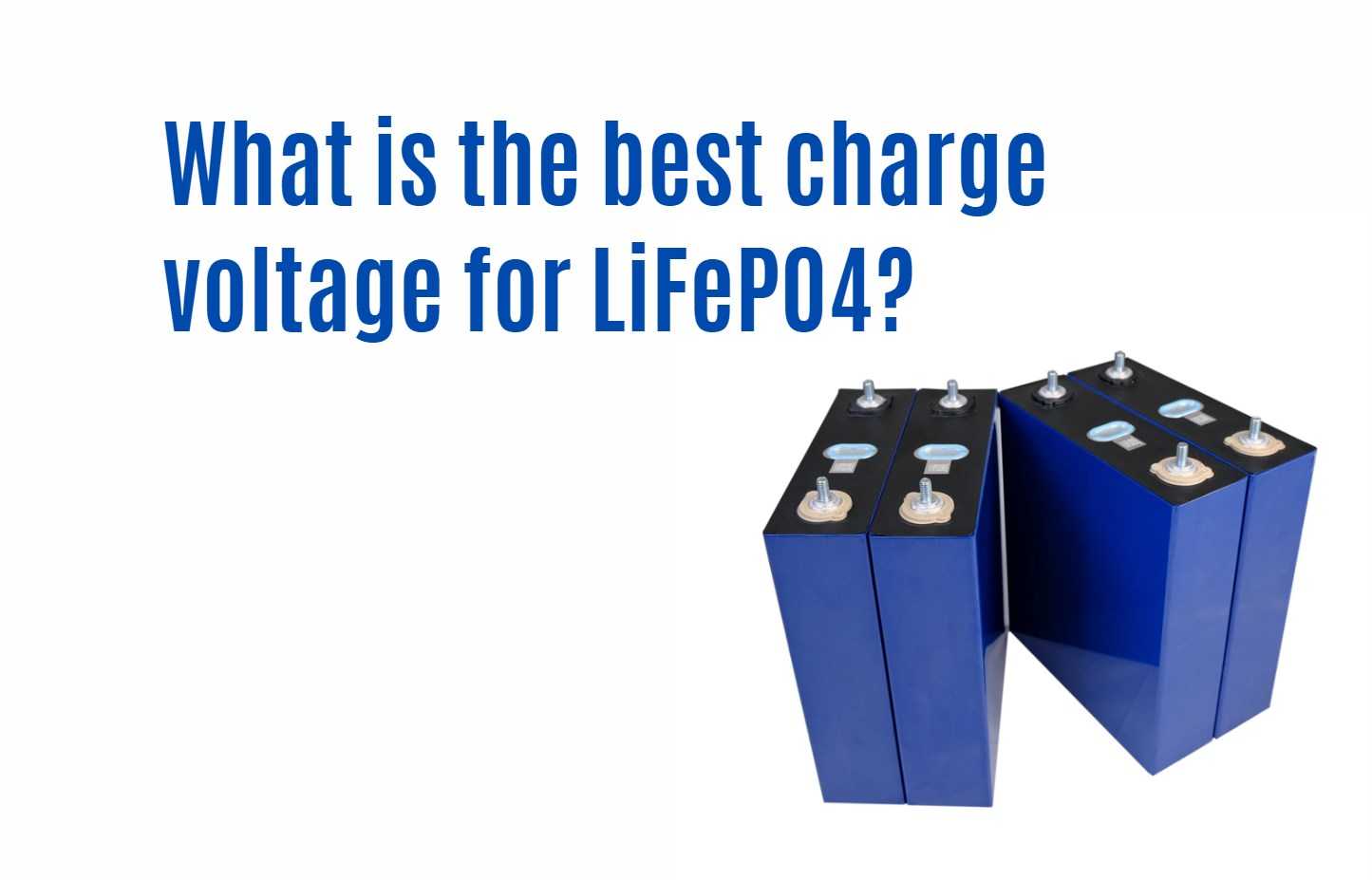When it comes to charging Lithium Iron Phosphate (LiFePO4) batteries, understanding the optimal charge voltage is crucial for maximizing performance, lifespan, and safety. LiFePO4 batteries are increasingly popular in various applications, including electric vehicles, solar energy storage systems, and portable electronics. This article will provide an in-depth analysis of the best charge voltage for LiFePO4 batteries, including factors influencing charging, recommended practices, and the implications of improper charging.
1. Overview of Lithium Iron Phosphate Batteries
1.1 What are LiFePO4 Batteries?
Lithium Iron Phosphate batteries are a type of lithium-ion battery that uses lithium iron phosphate as the cathode material. This chemistry offers several advantages:
- Safety: LiFePO4 batteries are known for their thermal stability and lower risk of combustion.
- Longevity: These batteries typically have a longer cycle life compared to other lithium-ion chemistries.
- Environmental Impact: The materials used in LiFePO4 batteries are less toxic and more environmentally friendly.
1.2 Key Characteristics
- Nominal Voltage: The nominal voltage of a LiFePO4 cell is approximately 3.2 to 3.3 volts.
- Charge Voltage: The recommended charge voltage typically ranges from 3.6 to 3.65 volts per cell.
2. Recommended Charge Voltage for LiFePO4 Batteries
2.1 Optimal Charging Voltage Range
For LiFePO4 batteries, the optimal charging voltage per cell is generally:
- 3.6 to 3.65 volts: This range ensures efficient charging while preventing overcharging, which can lead to reduced battery life or safety hazards.
2.2 Full Charge Voltage
To achieve a full charge without compromising safety:
- A full charge for a typical LiFePO4 battery pack (e.g., 12V system with four cells in series) should be around 14.6 to 14.8 volts.
2.3 Charging Profiles
Using the correct charging profile is essential:
- Constant Current (CC): Initially charge at a constant current until reaching the set voltage.
- Constant Voltage (CV): Once the target voltage is reached, switch to constant voltage mode until the current drops to a predefined level (usually around 0.05C).
3. Factors Influencing Charge Voltage
3.1 Temperature Effects
Temperature significantly impacts battery performance and charging:
- Charging at temperatures outside the recommended range (typically 0°C to 45°C) can affect capacity and safety.
- It is advisable to reduce the charging current or voltage if temperatures exceed this range.
3.2 Battery Age and Condition
The age and condition of the battery can influence optimal charging:
- Older batteries may require adjustments in charge voltage to prevent overcharging or undercharging.
3.3 Manufacturer Specifications
Always refer to manufacturer specifications for specific models:
- Different manufacturers may have slightly different recommendations based on their battery designs and chemistries.
4. Implications of Improper Charging
4.1 Overcharging Risks
Charging above the recommended voltage can lead to:
- Thermal Runaway: A dangerous condition where the battery overheats and can potentially catch fire.
- Capacity Loss: Prolonged overcharging can permanently damage the battery’s capacity.
4.2 Undercharging Consequences
Conversely, undercharging can also be detrimental:
- Insufficient charge can lead to reduced performance and shorter run times.
- It may cause imbalance among cells in a multi-cell configuration, leading to premature failure.
5. Best Practices for Charging LiFePO4 Batteries
5.1 Use Quality Chargers
Invest in high-quality chargers specifically designed for LiFePO4 batteries:
- Ensure that chargers have built-in safety features such as over-voltage protection and temperature monitoring.
5.2 Monitor Charging Conditions
Regularly monitor the charging environment:
- Keep an eye on temperature and ensure proper ventilation during charging.
5.3 Follow Manufacturer Guidelines
Always adhere to manufacturer guidelines regarding charge voltages and procedures:
- This ensures optimal performance and longevity of your battery system.
6. Latest Developments in Battery Technology
Recent advancements in lithium battery technology focus on improving efficiency and safety features:
- Innovations in smart battery management systems (BMS) allow for real-time monitoring of charge levels and health status.
- Research into solid-state batteries promises increased energy density and enhanced safety characteristics in future models.
7. Frequently Asked Questions (FAQs)
7.1 What happens if I exceed the recommended charge voltage?
Exceeding the recommended charge voltage can lead to overheating, capacity loss, or even thermal runaway.
7.2 Can I use a regular lithium charger for my LiFePO4 battery?
No, it is essential to use a charger specifically designed for LiFePO4 batteries to ensure safe and effective charging.
7.3 How often should I check my battery’s charge level?
Regular checks are advisable, especially before long trips or extended periods of inactivity; ideally, check every few weeks.
8. Conclusion
In conclusion, maintaining the correct charge voltage for Lithium Iron Phosphate (LiFePO4) batteries is essential for ensuring safety, efficiency, and longevity. By adhering to recommended charging practices and being aware of factors that influence performance, you can maximize your battery’s potential while minimizing risks associated with improper charging. As technology continues to evolve, staying informed about best practices will help you make the most out of your energy storage solutions.At Redway Battery, we specialize in manufacturing high-quality Lithium LiFePO4 solutions tailored to meet diverse customer needs worldwide. With our extensive experience in this field, we provide custom solutions quickly for wholesale and OEM customers. For a quick quote or more information about our products, please contact us today!





